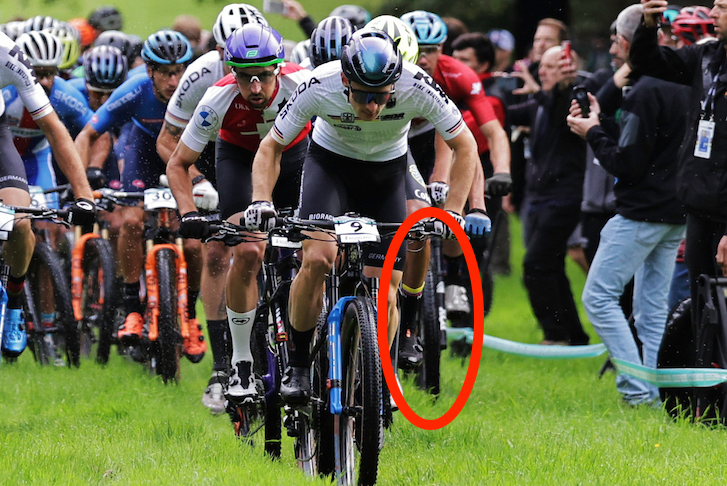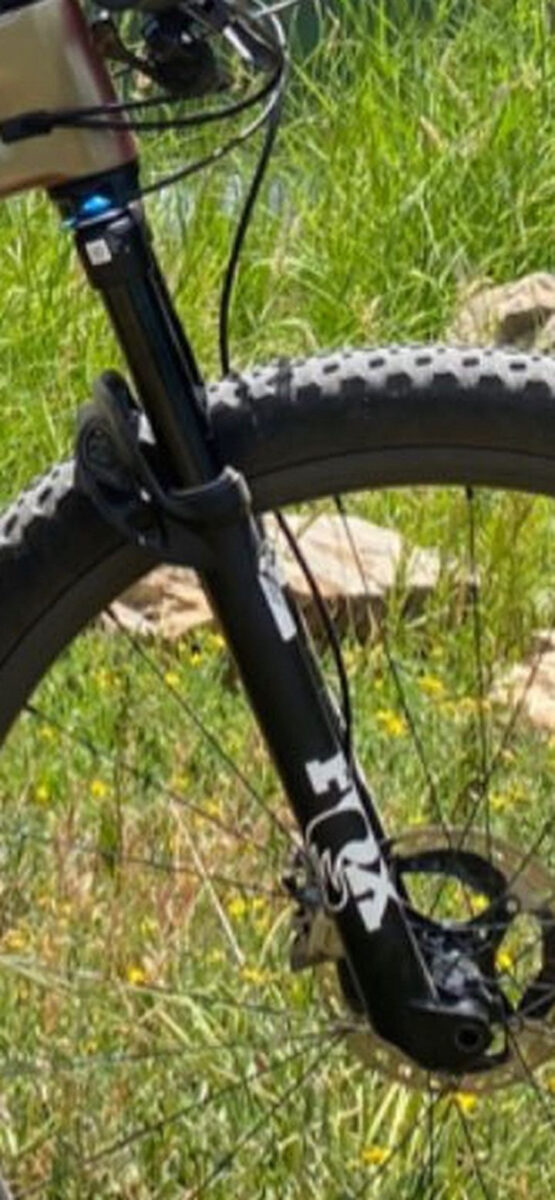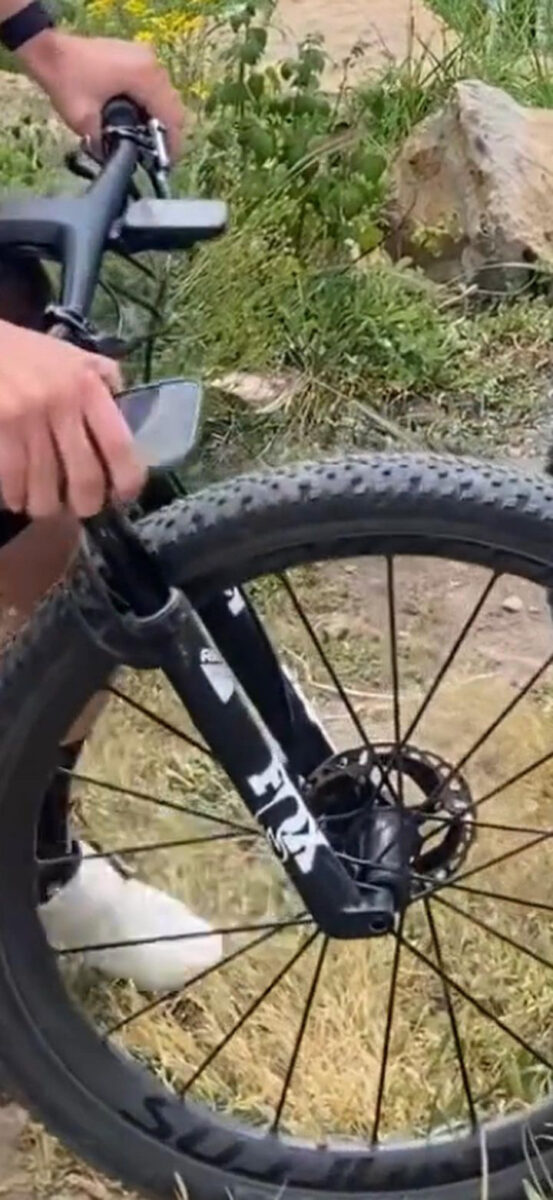This week, Scotland is hosting the best mountain bikers in the world as the 2023 UCI World Championships continue. With the top racers from each country toeing the line, there’s bound to be some of the best equipment in the world as well – including some prototypes.
UPDATE: We’ve got a closer look with more details from the Snow Shoe World Cup race!
We received an anonymous tip that a racer might be running what appeared to be a new fork from Fox that was all-black. There were no pictures provided, and even with a reporter on hand at the venue, the bike in question has proven to be elusive. So we set about combing the internet to see what we could come up with.
After some extensive digging, it seems that we found it on the front of a Canadian racer’s bike in the Marathon XC race. Both of the pictures we found don’t list the riders in it, but by the Canadian jersey and the color of the helmet, it appears to be that of Andrew L’Esperance who races for the Maxxis Factory Racing team on an Ibis Exie.

What’s interesting here is that in all of the photos we’ve seen from the race, the Fox-sponsored riders are on the factory-orange forks with Kashima. Even Andrew posted a selfie before the race where you can see an orange Fox fork on the front of his Exie.
Yet, in photos of the race, he is one of the only Fox riders on a black fork. On Twitter, we found two photos of the race where you can just make out the fork on the front – one from the start of the race from @CyclingWorlds, and the other mid-race from @annew4287.

Zoom in far enough and we’re left with some Bigfoot-level graininess, but with the black fork next to another orange Fox fork, you can definitely tell there are differences. The all-black fork is conveniently much harder to pick out in photos, and doesn’t stand out to the casual observer.

Photo via @CyclingWorlds Twitter
The photo from @CyclingWorlds is more clear, but the fork is just peeking out from behind the lead rider. But again, where you would normally expect to see the start of the arch on a Step-Cast 32 or 34, you see exposed stanchion and a straight line across the front of the lower. The only way for the front of the fork to look this way is if the arch is in the back (or if there was somehow no arch at all – highly unlikely).
Update:


We love our readers. After reading this story, James Meezan reached out to us and offered up these two photos which give a much better look at the reverse arch of the new fork. Now we can definitively say it’s a reverse arch design, with an arch that looks far more burly than the one on the Taper-Cast 32 Gravel fork.
We can also see that at least of the bikes has a remote lockout on the front. The other bike appears to be a Scott based on what looks to be a TwinLoc lever, meaning it likley has a remote lockout as well.
Nice find, James!
Second Update:
Thanks to Raoul and Dean who both sent this in, we now have a better look at the front of the fork as well on Haley Smith’s bike. Between the World Championships and the Leadville 100, Fox seems to have had a coordinated soft launch of the RAD fork in the wild. As we learned with the development of the Taper-Cast 32 Gravel fork, RAD is Fox’s Racing Application Development program. And just like that gravel fork, we seem to be getting an intentional leak from Fox teasing the new fork as it’s developed with the world’s best racers.
Why Reverse Arch, Why Now?
As we recently learned during the development of the Fox Taper-Cast gravel fork, Manitou’s patent on the Reverse Arch design expired in 2021. It seems that the benefits of a reverse arch were enough to entice Fox to try it out on their gravel forks, so it makes sense they might be developing an XC fork around the same idea. Like the Fox Taper-Cast 32 Gravel fork, maybe the reverse arch allows Fox to make a lighter or stiffer XC race fork?
We’ve also heard rumors that for new tech to be used in the 2024 Olympics in Paris, it must be used this year at Worlds. That may suggest that we’ll see something launch before next August.
Without a clear picture of the arch itself, it’s hard to say what Fox is up to. But there is plenty of evidence to suggest that the next XC race fork from Fox may have a reverse arch.
